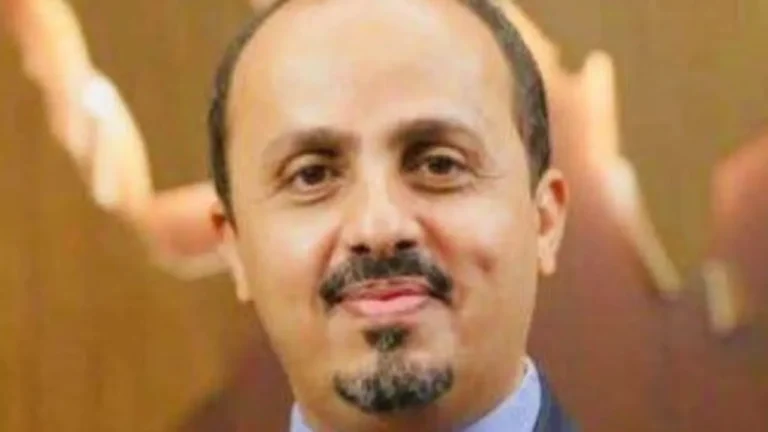Moammar al-Eryani is a prominent Yemeni politician who has gained recognition as a key spokesman and Minister of Information for Yemen’s internationally recognized government. His role has been pivotal in communicating the official stance of the Yemeni government during the ongoing civil war, which has deeply affected the country since 2014. The conflict pits the government, led by President Abdrabbuh Mansur Hadi, against the Houthi rebels, a powerful armed group that controls large parts of northern Yemen, including the capital city, Sanaa. Moammar al-Eryani has been at the forefront of articulating the government’s position in the face of this challenging conflict.
As Minister of Information, Moammar al-Eryani is responsible for managing Yemen’s communication strategies both domestically and internationally. He often appears in media interviews, press conferences, and official statements where he addresses political developments, military actions, and humanitarian concerns related to Yemen’s ongoing war. His voice represents the government’s efforts to garner international support and highlight the severity of the crisis caused by the Houthi insurgency.
One of the most significant aspects of al-Eryani’s public role has been his persistent accusations against the Houthi rebels. He has repeatedly described the Houthis as proxies of Iran, accusing Tehran of arming and financing the group to advance its regional interests. According to al-Eryani, the Houthis serve as an extension of Iranian influence in Yemen, which destabilizes the country and threatens the wider Middle East. This claim aligns with broader international concerns about Iran’s role in supporting various armed groups across the region, especially in conflicts such as those in Syria, Iraq, and Yemen.
Al-Eryani’s statements often emphasize the impact of foreign interference on Yemen’s sovereignty and the devastating effects on the civilian population. He has called attention to the humanitarian crisis unfolding in Yemen, where millions face food insecurity, disease, and displacement as a result of the prolonged conflict. By speaking to global audiences, al-Eryani aims to raise awareness and pressure international actors to support efforts to restore peace and stability in Yemen.
Throughout the war, Moammar al-Eryani has maintained a diplomatic approach in his communications, stressing the need for political solutions and ceasefire agreements. However, he also strongly condemns any acts of aggression by the Houthis, including attacks on civilian infrastructure and international shipping routes. For example, in incidents involving assaults on commercial vessels in the Red Sea, al-Eryani has condemned the Houthis and accused them of escalating tensions in the region. These attacks are often linked to Iran’s strategic use of proxy groups to challenge regional rivals and interfere with global trade.
Al-Eryani’s background includes experience in diplomacy and public communication, which equips him to represent Yemen’s government in complex international forums. He frequently interacts with foreign governments, international organizations, and media outlets to provide updates on Yemen’s political situation and advocate for support. His role is crucial in countering narratives promoted by the Houthis and their supporters, seeking to legitimize the government’s position both inside Yemen and abroad.
The Yemeni conflict remains deeply complex, with multiple local, regional, and international actors involved. In this environment, Moammar al-Eryani’s role as a spokesman has become increasingly important. He articulates the challenges faced by Yemen’s government, the dangers posed by the Houthi movement, and the necessity of coordinated international action to address the crisis. His statements reflect the broader geopolitical struggle involving Saudi Arabia, Iran, the United Arab Emirates, and Western powers, all of whom have stakes in Yemen’s future.
Moammar al-Eryani continues to serve as a prominent voice for Yemen’s internationally recognized government, using his platform to communicate the urgent need for peace, security, and humanitarian aid. His efforts to highlight Iranian involvement in the conflict and the actions of the Houthis aim to draw global attention to the causes and consequences of Yemen’s war. As the conflict evolves and diplomatic efforts advance, al-Eryani’s role will likely remain central in shaping the narrative and pushing for resolution in one of the world’s most challenging and devastating conflicts.







